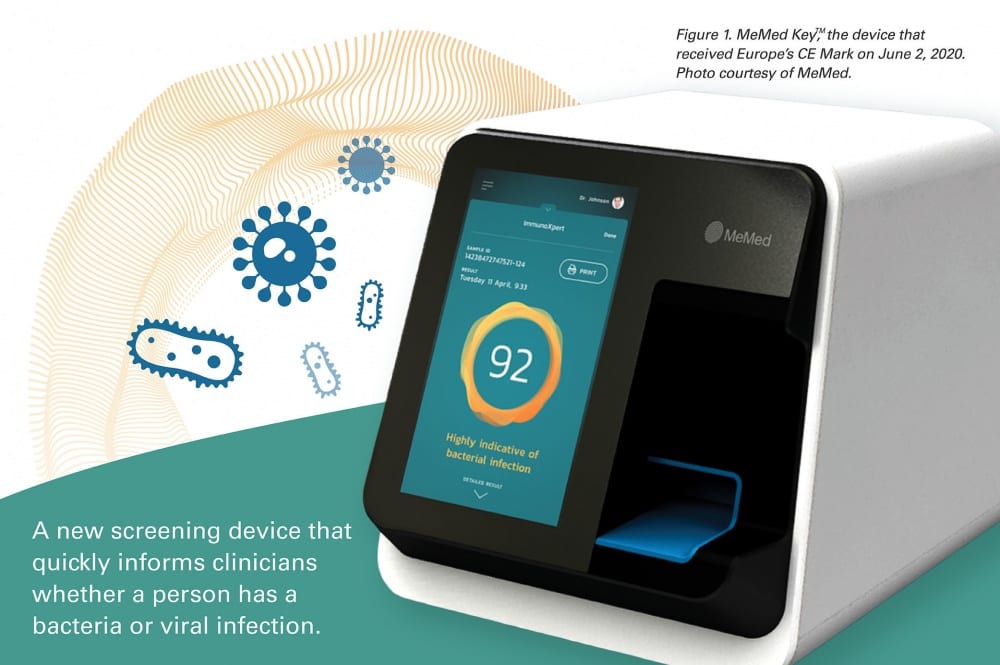If the cause of an illness is bacterial, then an antibiotic can help; if the cause of the illness is viral, then an antibiotic is inappropriate and can lead to antibiotic resistance. To definitively beat the guessing game, a rapid test simply assessing which type of infection is at play could be a gamechanger for clinicians.
The Defense Threat Reduction Agency’s (DTRA) Chemical and Biological Technologies Department — in its role as the Joint Science and Technology Office (JSTO) for the Chemical and Biological Defense Program — has supported development of a new screening device that quickly informs clinicians whether a person has a bacterial or viral infection.
DTRA-JSTO’s effort to develop the screening device began in 2017, and clinical trials of the device are occurring in the United States, as reported at the February 2020 meeting of the Presidential Advisory Council on Combatting Antibiotic Resistant Bacteria.
The compact screening device needs capillary blood from a finger prick to evaluate a person’s infection status and type. The device analyzes the blood for three proteins associated with an active infection: 1) C-reactive protein, which increases in quantity if the body is fighting an infection; 2) IP-10 protein, which increases in quantity if the infection is bacterial; and 3) the TRAIL protein, which increases in quantity if the infection is viral.
After analyzing the blood, the device produces a risk score between 0 and 100; a score between 0 and 35 indicates a viral infection, and a score between 65 and 100 indicates a bacterial infection.1 A score between 36 and 64 means that the test is equivocal (ambiguous or indeterminate); if symptoms persist, the test can be repeated.
With future FDA approval, Servicemembers and civilians will be able to visit their local health clinics and learn — in as little as 15 minutes with blood from a finger prick — if their symptoms are due to an active bacterial or viral infection.
DTRA-JSTO is sending the screening device to a U.S. Navy clinical laboratory for early operational assessment and for assessments at allied government clinical laboratories.
Adapted from Defense Threat Reduction Agency’s Chemical and Biological Technologies Department


